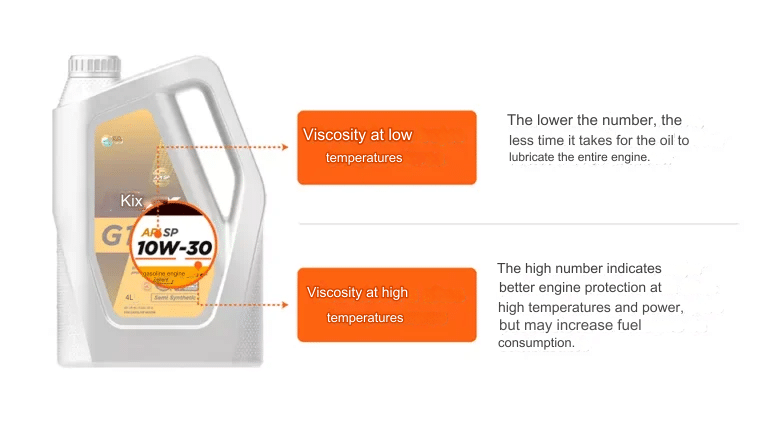
We normally take some things for granted, such as the lubricating oil of our vehicle’s engine. We often use the lubricating oil that someone recommended to us, the same one that the previous vehicle owner used, or the cheaper one, but we rarely stop to think carefully if it is the right oil.
It is crucial to know how to choose the ideal lubricating oil for our vehicle, as it can significantly affect its performance and useful life.
Table of Contents
ToggleWhy is it important to choose the right oil?
Lubricating oil plays a fundamental role in the intricate ecosystem of the engine, going beyond simply lubricating parts.
This is due to its composition of:
- Base Oil: This is the largest proportion of the lubricant. It can be mineral (derived from petroleum), synthetic (chemically created), or semi-synthetic (a mixture of both).
- Additives: These are chemical substances added to the oil to improve its properties. They include antiwear agents, detergents (to clean the engine), dispersants (to prevent the formation of deposits), viscosity index improvers (to maintain viscosity at different temperatures), and antifoam agents, among others.
- Additive Base Oils: Some additives are suspended in special base oils to facilitate homogeneous mixing with the base or main oil.
These components and properties give essential characteristics to the lubricating oil that allow it to:
Reduce Friction and Wear:
Lubricating oil acts as a ‘shock absorber’ between the engine’s moving parts, reducing friction. Friction, in turn, produces heat and wear. Choosing the wrong oil can result in excessive friction, decreasing efficiency, and increasing internal engine temperature.

DISSIPATE OR REDUCE HEAT
Oil plays a vital role in lubrication and cooling the engine. As it flows through the system, it absorbs heat from combustion and internal friction. Choosing an oil with an incorrect viscosity or inadequate thermal conduction capacity can cause the engine to overheat, negatively affecting its performance and, in the long term, its useful life.

Protect against Corrosion and Rust
Engines are exposed to weather conditions and elements that could trigger corrosion and rust. A quality lubricating oil includes additives that form a protective layer, acting as an invisible shield against the damaging effects of moisture and other corrosive elements.

Clean waste
Oil not only lubricates but also acts as a cleaning agent, picking up dirt particles and deposits that build up over time. Choosing a quality oil will help keep engine components clean, prevent debris buildup, and ensure consistent performance.

Improve Performance and Efficiency
Proper lubricating oil improves engine efficiency, resulting in better performance and greater fuel efficiency. Choosing the wrong oil can result in higher fuel consumption and wear between parts.

Meet Manufacturer’s Specifications
Vehicle manufacturers provide oil recommendations because of the way their engines are designed. Some engines even require exclusive oils due to their demands. Following these specifications ensures optimal performance and prevents potential costly and unwanted damage.

Choosing the right lubricating oil for your vehicle is not just a matter of preference or price, it is a strategic decision that directly affects the performance and life of your engine, since that is the importance of choosing well.
How to choose the right lubricating oil?
When choosing the right oil for your engine, it is important to consider the following factors:
Viscosity Classification
The viscosity of the lubricating oil is a crucial factor. This measurement determines the oil’s ability to flow at different temperatures. Multigrade oils, identified by numbers such as 10W-30 or 5W-40, are ideal for dealing with various weather conditions. The first figure indicates the viscosity at low temperatures (W = Winter), while the second shows the viscosity at high temperatures. The lower the number, the better the fluidity at low temperatures.

Since we don’t face freezing temperatures in most of Latin America, a 10W-40 rating could be a solid option. This ensures good flow at start-up while maintaining adequate viscosity when the engine is warm.
Oil Type: Synthetic, Semi-synthetic or Conventional
Another important question is whether to use synthetic, semi-synthetic, or conventional oil. Synthetic oils offer better high-temperature stability and superior wear protection but are also more expensive. Semi-synthetic oils balance cost and performance, while conventional oils are more economical but may require more frequent changes.

Manufacturer Specifications
DO NOT UNDERESTIMATE ITS IMPORTANCE. Before making a decision, it is essential to review the vehicle manual. Car manufacturers provide specific recommendations on the type and viscosity of oil that best suits your engine. Failure to follow these guidelines may void the vehicle’s warranty and negatively affect long-term performance.

Choosing the right lubricating oil is essential to your vehicle’s performance and longevity. The key is understanding the engine’s specific needs, following the manufacturer’s recommendations, and considering factors such as viscosity, oil type, and additional specifications.
Regardless of the type of oil you use, it is advisable to include an anti-friction in your maintenance routine, protecting your engine at all times, even in extreme conditions in which lubricating oil may not provide the necessary protection, such as:
- Lubricating oil contamination
- Oil loss
- cold start
Regular use reduces friction, wear, and engine temperature, increasing fuel efficiency and life.
Leave a Reply